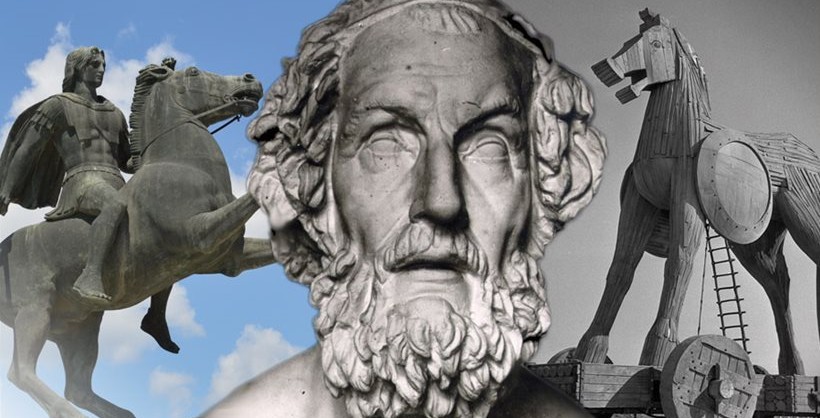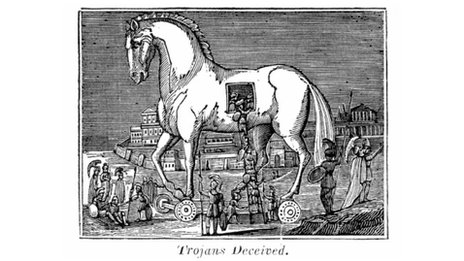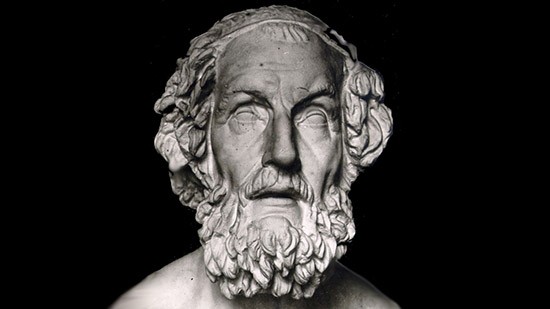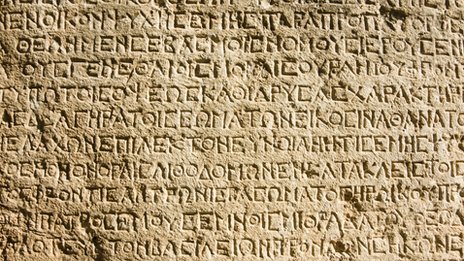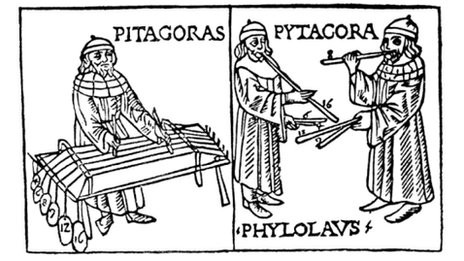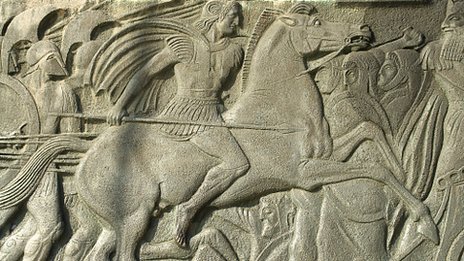The BBC today hosts Article of Armand d’Angour, from the University of Oxford, entitled “How many Greek legends were really true?”. The disgraceful text is trying to devalue the Greek culture and attempts to reduce the contribution of the Greek spirit. The word provocation might be small to characterize the professors allegations which works at Jesus College in Oxford, and considers himself musician because he plays cello and piano.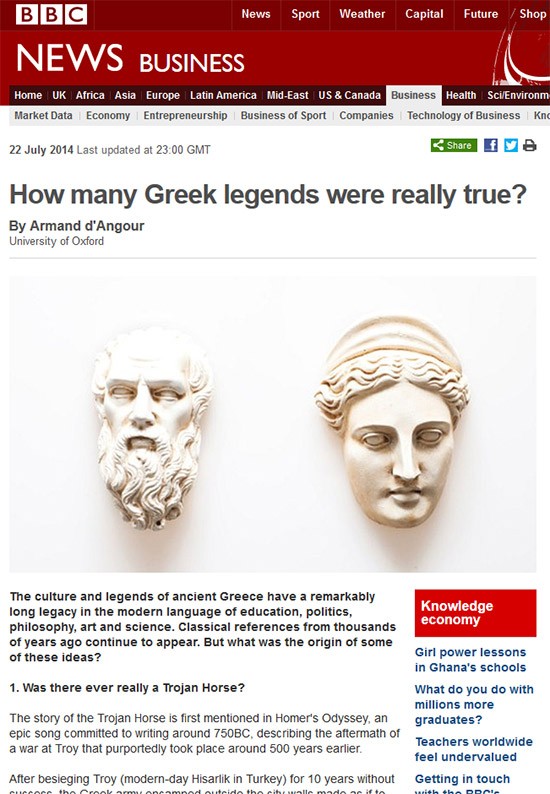
Read some examples of how the professor who has done research on culture and literature in ancient Greece is trying to deconstruct the Greek culture.
1. Was there ever really a Trojan Horse?
For 10 years without success, the Greek army encamped outside the city walls made as if to sail home, leaving behind them a giant wooden horse as an offering to the goddess Athena. The Trojans triumphantly dragged the horse within Troy, and when night fell the Greek warriors concealed inside it climbed out and destroyed the city. Archaeological evidence shows that Troy was indeed burned down; but the wooden horse is an imaginative fable, perhaps inspired by the way ancient siege-engines were clothed with damp horse-hides to stop them being set alight by fire-arrows.
2. Homer is one of the great poets of ancient Greek legends. Did he actually exist?
The professor d’Angour supports that the ancients may had no doubt that Homer was a real bard who composed the monumental epics Iliad and Odyssey,but yet nothing certain is known about him.
3. Was there an individual inventor of the alphabet?
According to the columnist the Greek alphabet was adapted the language of the Phoenicians. He claims that the shapes of the letters are visually different from those of the earlier Phoenicians and that the geometric shape of the letters is attributed to the 6th century BC mathematical Pythagoras.
4. Did Pythagoras invent Pythagoras’ theorem? Or did he copy his homework from someone else?
The Oxford University professor writes that the Babylonians knew the equation of Pythagoras centuries ago and there is no proof that he even created it. Indeed, the evidence says that although later Pythagoreans did serious mathematical researches, Pythagoras was a mystic who believed that numbers contain everything.
5. What made the Greeks begin using money? Was it trade or their “psyche”?
Financial Instruments, Institutions, currencies, contracts, debt – meanings that had developed in many Greek cities from the 5th century BC. But there was a state that faced money with great suspicion and resisted its introduction, and that was Sparta.
6. Was Alexander the Great really that great?
According to the sources of Armand d’Angour, Alexander the Great was short, drunk and when he was enraged he couldn’t tell enemies from friends. As the years progressed he became increasingly paranoid and megalomaniac.

